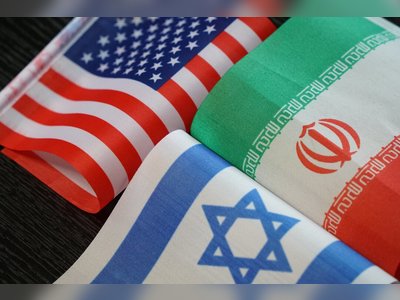
Dubai Chocolate Controversy: German Court Bans Turkish Replica Sales
Chef Nouel Catis applauds decisive legal ruling on Dubai-branded chocolate authenticity
In a significant ruling that has drawn attention to the importance of product authenticity, a German court has banned a discount supermarket chain from selling a Turkish-made version of 'Dubai chocolate'.
The decision came after a formal complaint was lodged by a businessman, resulting in a judgment that prevents the mislabeling of handmade chocolates that are not produced in the Emirate.
This decision has been welcomed by Chef Nouel Catis, a Filipino dessert specialist largely credited with developing the original recipe.
Chef Catis, who was instrumental in creating the viral pistachio-kunafa chocolate with the Dubai-based brand FIX Dessert Chocolatier, praised the court's decision, emphasizing the necessity of attributing cultural and culinary creations to their origin.
'The Dubai chocolate fever has taken over the world, so it is only right that there is some policing regarding how it should be properly attributed,' he remarked, drawing parallels to the way certain regional names like Camembert or Champagne bear protected designation.
The German court found the labeling of the Turkish version as 'Dubai Handmade Chocolate' misleading, noting that consumers would reasonably expect such a product to have originated from Dubai.
Chef Catis echoed this sentiment, stating, 'They can say Dubai-style chocolates but cannot claim that it is the viral chocolate.'
The origin of this now-world-renowned pistachio kunafa chocolate bar can be traced back to FIX Dessert Chocolatier, a venture founded by entrepreneur Sarah Hamouda.
Chef Nouel Catis was brought on board to help develop this dessert, blending Middle Eastern flavors with innovative techniques that culminated in the global viral sensation.
Since then, the product has inspired countless replicas by various chocolate brands worldwide, underscoring Dubai's growing reputation as a creative and culinary hub.
This case marks a broader discussion around intellectual property and branding in the global marketplace, especially in light of the increasing replication of popular goods.
The ruling ensures that Dubai, which continues to position itself as a city of innovation and culinary excellence, remains credited for its contributions to global cuisine.
The decision came after a formal complaint was lodged by a businessman, resulting in a judgment that prevents the mislabeling of handmade chocolates that are not produced in the Emirate.
This decision has been welcomed by Chef Nouel Catis, a Filipino dessert specialist largely credited with developing the original recipe.
Chef Catis, who was instrumental in creating the viral pistachio-kunafa chocolate with the Dubai-based brand FIX Dessert Chocolatier, praised the court's decision, emphasizing the necessity of attributing cultural and culinary creations to their origin.
'The Dubai chocolate fever has taken over the world, so it is only right that there is some policing regarding how it should be properly attributed,' he remarked, drawing parallels to the way certain regional names like Camembert or Champagne bear protected designation.
The German court found the labeling of the Turkish version as 'Dubai Handmade Chocolate' misleading, noting that consumers would reasonably expect such a product to have originated from Dubai.
Chef Catis echoed this sentiment, stating, 'They can say Dubai-style chocolates but cannot claim that it is the viral chocolate.'
The origin of this now-world-renowned pistachio kunafa chocolate bar can be traced back to FIX Dessert Chocolatier, a venture founded by entrepreneur Sarah Hamouda.
Chef Nouel Catis was brought on board to help develop this dessert, blending Middle Eastern flavors with innovative techniques that culminated in the global viral sensation.
Since then, the product has inspired countless replicas by various chocolate brands worldwide, underscoring Dubai's growing reputation as a creative and culinary hub.
This case marks a broader discussion around intellectual property and branding in the global marketplace, especially in light of the increasing replication of popular goods.
The ruling ensures that Dubai, which continues to position itself as a city of innovation and culinary excellence, remains credited for its contributions to global cuisine.
Translation:
Translated by AI











